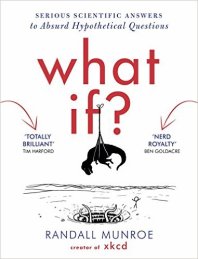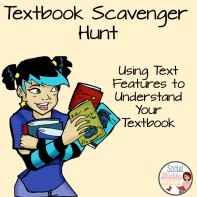Found a fantastic graphic at https://www.teachingwithdnd.com/
Category: Resources
Alone Among the Stars: a Journaling Micro-Game
 While I was hunting for quarantine deals on RPG materials, I ran across a cache of tiny, bite-sized writing games that I really liked. I’d really like to build up a selection of these types of games for use in a home-schooling setting.
While I was hunting for quarantine deals on RPG materials, I ran across a cache of tiny, bite-sized writing games that I really liked. I’d really like to build up a selection of these types of games for use in a home-schooling setting.
What is this?
There’s a lot of games like this on the web, and they’re described in a lot of different ways. They’re sometimes called “micro-games” or “micro-RPGs.” Typically, they are role-playing-games, although they don’t bear much resemblance to the type of thing we usually imagine when we hear that term. The most descriptive label that I have seen is “journaling game.”
How can I use it?
The basic CC standard that these games relate to is this: CCSS.ELA-LITERACY.W.6.3 (Write narratives to develop real or imagined experiences or events using effective technique, relevant descriptive details, and well-structured event sequences.) It’s essentially scaffolded practice with writing narratives. The game mechanics are a bit of extra structure which makes the process easier, and quicker.
Here are some more ways that journaling games can be useful in your classroom
- Bellwork – a lot of teachers use daily journals as bellwork to get students in their seats and working silently before the class starts.
- In a school with an emphasis on classroom management, the main goal is to set the tone for the period, to ensure that there’s no excuse for off-task behavior during transition time.
- Daily journals are an unobtrusive means of periodic informal assessments. Journaling can be something really low-pressure that is not completed for a grade. It may not be worth points, but it provides the instructor with valuable information on a student’s level of achievement in writing.
- Journal-writing for bellwork meets part of the following standard: CCSS.ELA-LITERACY.CCRA.W.10 (Write routinely over extended time frames and shorter time frames for a range of tasks, purposes, and audiences.) It’s a way to ensure that students have practice with extemporaneous, short writing assignments for a variety of purposes.
- Journaling games may be a vehicle for practicing or assessing relevant writing skills, or vocab words – you could easily ask students to complete 1 round of the game for each vocab word they are practicing, using that word correctly in their written responses to the game’s prompts.
- A means of processing and responding to the assigned reading – this application is fairly dependant on being able to match a specific journaling game to a specific text with similar or compatible tone and themes. If a good match can be made, the journaling game can be a way for the student to mimic the tone/themes of the text, or to push them further, or to take them in a different direction.
- A fun and constructive reward for students who have extra time – you always need ways to occupy kids who speed through their work.
- A template for students to create their own journaling games – the mechanics of this game are such that they can easily be used as a copy/paste template. Students can create their own scenario and replace the tables with their own text to create a totally different product.
Alone Among the Stars
by Takuma Okada
You are a solitary adventurer, hopping from planet to planet exploring. Each world has unique features for you to discover and record. They are represented by cards from a standard deck, placed face down.
Instructions
- To find a new planet, roll a 6-sided die and place cards face down equal to the number rolled.
- To flip over a card & make a discovery, roll a 6-sided die:
- On a 1-2 it is arduous to get to.
- On a 3-4 you come upon it suddenly.
- On a 5-6 you spot it as you are resting.
- The suit and rank determine the discovery. In your ship’s log (a small journal if you have one), record a short description and your reaction in a few sentences
- Roll for the next card. Each time you complete a planet, give it a number or a name, and find a new planet.
Tradebook Review: What If?

I had to do 4 of these tradebook reviews for class, and I wanted one of them to be something that could be taught in two different content-area classrooms at once. The first thing that came to my mind was some kind of historical fiction (social-studies/language arts) but then I noticed “What If: Serious Scientific answers to Absurd Hypothetical Questions” sitting on my bookshelf (science/language arts.)
“What If” is written by Randall Munroe, the guy who does XKCD, and his book is very much in the same spirit as his webcomics. I love XKCD. It’s sweet, sad, hilarious, philosophical, and educational. I just had to figure out how to work some of that magic into the classroom. So, here’s the review below the jump. Again, it’s in template form.
Tradebook Review: Citizen of the Galaxy
 I’ve been writing some tradebook reviews for class, and I wanted to share a couple of them. I was complaining to a friend of mine about how hard it is for me to find books for students that satisfy all the different mundane considerations that have to be taken into account, but are still – you know – good literature. He recommended “Citizen of the Galaxy.” It’s perfect, and that’s kind of thrilling, because how often do you get to introduce classic sci-fi into the classroom? Not often enough!
I’ve been writing some tradebook reviews for class, and I wanted to share a couple of them. I was complaining to a friend of mine about how hard it is for me to find books for students that satisfy all the different mundane considerations that have to be taken into account, but are still – you know – good literature. He recommended “Citizen of the Galaxy.” It’s perfect, and that’s kind of thrilling, because how often do you get to introduce classic sci-fi into the classroom? Not often enough!
Here it is below the jump. I’ve left it in review template form, more or less the way I turned it in.
Textbook Scavenger Hunt
 I put this together recently for my literacy class. I’m posting here mainly because I there’s quite a variety of questions that can be asked in a textbook scavenger hunt. I think I did a pretty good job of covering a wide range of potential questions and having them available in the future should speed up the process. The textbook I used is one of the books required for my literacy class, so it’s not exactly representative of a book you might use in a high-school classroom, but the principals are the same
I put this together recently for my literacy class. I’m posting here mainly because I there’s quite a variety of questions that can be asked in a textbook scavenger hunt. I think I did a pretty good job of covering a wide range of potential questions and having them available in the future should speed up the process. The textbook I used is one of the books required for my literacy class, so it’s not exactly representative of a book you might use in a high-school classroom, but the principals are the same
An answer to the very difficult question of “What for?”
Why teach literature at all? I easily develop an anxious attitude about the difficulty of demonstrating specific value and utility for things like literature that are hard to evaluate. I feel an unconscious responsibility to have an exact answer about things that I love. As usual, I find John Gardner’s take on the question really gratifying and liberating. Literature brings me joy. For almost any purpose, that is enough of an answer. The details are less important. I’ll let him explain
The business of education is to give the student both useful information and life enhancing experience, one largely measurable, the other not; and since the life-enhancing value of a course is difficult to measure – since, moreover, many people in a position to put pressure on educational programs have no real experience in or feeling for the arts – it is often tempting to treat life-enhancement courses as courses in useful information, putting them on the same “objective” level as courses in civics, geometry or elementary physics.
So it comes about that books are taught (officially, at least) not because they give joy, the incomparably rich experience that we ask and expect of all true art, but because, as a curriculum committee might put it, they “illustrate major themes in American literature,” or “present a clearly stated point of view and can thus serve as a vehicle for such curriculum objectives as (1) demonstrating an awareness of the author’s purpose and (2) reading critically, and (3) identifying organizational patterns in literary selections used to support a point of view.” One cannot exactly say that such teaching in pernicious, but to treat great works of literature in this way seems a little like arguing for the preservation of dolphins, whales, chimps, and gorillas solely on the grounds of preserving ecological balance.
John Gardner’s “The Art of Fiction” is the best book on the difficult task of fiction-writing I have ever read. I have only read a few such books, but I would bet money that Gardner’s is one of the very best.
Do you have to cite things on a blog? Probably not….? Here’s the APA citation just in case.
Gardner, J. (1991). The art of fiction. New York: Vintage Books. Pg. 40-41
Poetry Performance
I had never heard of a TV show called Def Poetry Jam until today, but I’ve been seeing clips from that show for years without knowing what they were from. I originally started writing this post to talk about the SpokenPoetryTV Youtube channel, but I’ve been looking up info about Def Poetry Jam instead. It’s an old show; it went off the air in 2007. The history is fascinating. Slam poetry, of course, is fascinating by itself. I wish I knew more about it. Marc Smith, I think, usually credited with being the founder of the slam poetry movement, apparently felt that the movement had become too commercial in general, and specifically felt that Def Poetry Jam was exploitative.
Anyway. SpokenPoetryTV collects poetry performance videos. Performed poetry, especially really contemporary stuff, is powerful. Kids like me who come to class already hooked on Keats and Dickinson are pretty unusual. For everyone else, the everyday language, the movement, the audible passion in slam performances can make a transformative difference in their enjoyment of poetry.
Learning about Edutopia
I had assumed that the George Lucas of the educational foundation that carries his name was not THE George Lucas… but he is. Fortunately he’s a better philanthropist than script-writer.
Edutopia is one of the George Lucas Educational Foundation’s projects. They maintain a large and very active community of teachers and administrators. They also promote and curate content from that community on their website, which you can search/browse by topic or strategy.
Most of the content that they promote falls into specific categories, since they have explicitly aligned themselves with a few different “core strategies.” Technology integration, project-based learning, comprehensive assessment, integrated studies, and social-emotional learning, are their big themes.
Angela Watson’s Truth for Teachers
I’ve started my search for teaching materials and resources that I can really make my own with with podcasts, since that’s pretty close to where I live right now. I listen to podcasts all the time, and it just makes sense to be getting ideas and inspiration for teaching from that source. So far I’ve turned up some fairly unhelpful podcasts, and one absolute gem.
Angela Watson’s special focus is helping educators with their mental and emotional health. every episode begins the same way, with Angela serenely intoning “I’m here to speak life, encouragement, and truth into the hearts and minds of teachers.” Episodes are short; around 10-12 minutes. I’ve noticed a lot of what she talks about actually has elements of cognitive behavioral therapy.
“Teachers need truth more than anything else. Teachers are constantly being told things that aren’t true. Things like ‘your value is determined by you students’ test scores.’ Things like ‘there’s one right way to teach, and you’re not doing it.’… Someone needs to counter lies like these, and speak truth into teachers’ lives. I’m typically known as being a positive and encouraging person… but I want to be known as a truth teller as well.”
You can see she talks a lot about truth. I’m really connecting with that. I’ve become allergic to positivism for the sake of positivism. The truth heals even when it hurts. Education is complicated enough without creating barriers against simple honesty, with ourselves as well as others.
She signs off with “You can do this. It’s not going to be easy, but it’s going to be worth it.” Thanks Angela. I believe that.
11/01 Edit: She has a pinterest site


